
A Doll's House is a three-act play written by Norwegian playwright Henrik Ibsen. It premiered at the Royal Danish Theatre in Copenhagen, Denmark, on 21 December 1879, having been published earlier that month. The play is set in a Norwegian town c. 1879.

Christopher Marlowe, also known as Kit Marlowe, was an English playwright, poet, and translator of the Elizabethan era. Marlowe is among the most famous of the Elizabethan playwrights. Based upon the "many imitations" of his play Tamburlaine, modern scholars consider him to have been the foremost dramatist in London in the years just before his mysterious early death. Some scholars also believe that he greatly influenced William Shakespeare, who was baptised in the same year as Marlowe and later succeeded him as the preeminent Elizabethan playwright. Marlowe was the first to achieve critical reputation for his use of blank verse, which became the standard for the era. His plays are distinguished by their overreaching protagonists. Themes found within Marlowe's literary works have been noted as humanistic with realistic emotions, which some scholars find difficult to reconcile with Marlowe's "anti-intellectualism" and his catering to the prurient tastes of his Elizabethan audiences for generous displays of extreme physical violence, cruelty, and bloodshed.
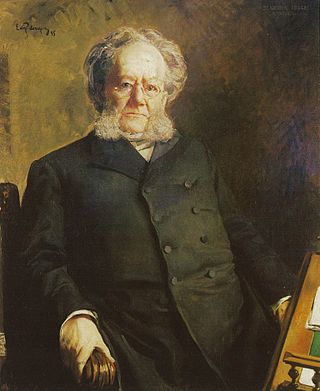
Henrik Johan Ibsen was a Norwegian playwright and theatre director. Ibsen is considered the world's pre-eminent dramatist of the 19th century and is often referred to as "the father of modern drama." He pioneered theatrical realism, but also wrote lyrical epic works. His major works include Brand, Peer Gynt, Emperor and Galilean, A Doll's House, Ghosts, An Enemy of the People, The Wild Duck, Rosmersholm, Hedda Gabler, The Master Builder, and When We Dead Awaken. Ibsen is the most frequently performed dramatist in the world after Shakespeare, and A Doll's House was the world's most performed play in 2006.
This article contains information about the literary events and publications of 1891.
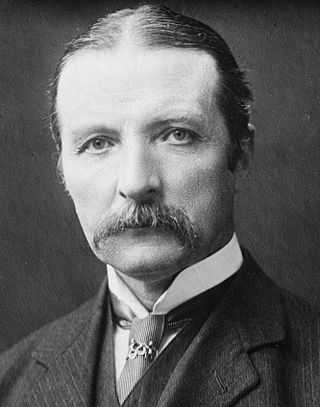
William Archer was a Scottish author, theatre critic, and English spelling reformer based, for most of his career, in London. He was an early advocate of the plays of Henrik Ibsen, and a friend and advocate of George Bernard Shaw.

The Tragical History of the Life and Death of Doctor Faustus, commonly referred to simply as Doctor Faustus, is an Elizabethan tragedy by Christopher Marlowe, based on German stories about the title character Faust. It was probably written in 1592 or 1593, shortly before Marlowe's death. Two different versions of the play were published in the Jacobean era several years later.

Ghosts is a play by the Norwegian playwright Henrik Ibsen. It was written in Danish and published in 1881, and first staged in 1882 in Chicago, Illinois, US, performed in Danish.

The Master Builder is a play by Norwegian playwright Henrik Ibsen.

Giorgio Ronconi was an Italian operatic baritone celebrated for his brilliant acting and compelling stage presence. In 1842, he created the title-role in Giuseppe Verdi's Nabucco at La Scala, Milan.

Janet Achurch was an English stage actress and actor-manager. She made her London debut in 1883. She played many Shakespearean roles, but is best known as a pioneer of major roles in the works of Ibsen and George Bernard Shaw. Her most notable role was as Nora in the first English production of A Doll's House (1889). She was married to actor Charles Charrington.
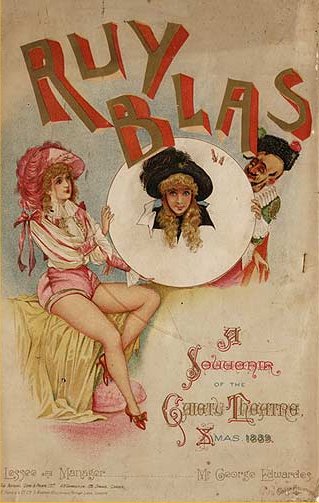
Victorian burlesque, sometimes known as travesty or extravaganza, is a genre of theatrical entertainment that was popular in Victorian England and in the New York theatre of the mid-19th century. It is a form of parody in which a well-known opera or piece of classical theatre or ballet is adapted into a broad comic play, usually a musical play, usually risqué in style, mocking the theatrical and musical conventions and styles of the original work, and often quoting or pastiching text or music from the original work. Victorian burlesque is one of several forms of burlesque.
Doctor Faustus Lights the Lights (1938) is a libretto for an opera by the American modernist playwright and poet Gertrude Stein. The text has become a rite of passage for avant-garde theatre artists from the United States: La MaMa Experimental Theatre Club, Judson Poets' Group, The Living Theatre, Richard Foreman, Robert Wilson, and The Wooster Group have all produced the piece.
English literature is literature written in the English language from the English-speaking world. The English language has developed over more than 1,400 years. The earliest forms of English, a set of Anglo-Frisian dialects brought to Great Britain by Anglo-Saxon settlers in the fifth century, are called Old English. Beowulf is the most famous work in Old English. Despite being set in Scandinavia, it has achieved national epic status in England. However, following the Norman conquest of England in 1066, the written form of the Anglo-Saxon language became less common. Under the influence of the new aristocracy, French became the standard language of courts, parliament, and polite society. The English spoken after the Normans came is known as Middle English. This form of English lasted until the 1470s, when the Chancery Standard, a London-based form of English, became widespread. Geoffrey Chaucer (1343–1400), author of The Canterbury Tales, was a significant figure developing the legitimacy of vernacular Middle English at a time when the dominant literary languages in England were still French and Latin. The invention of the printing press by Johannes Gutenberg in 1439 also helped to standardise the language, as did the King James Bible (1611), and the Great Vowel Shift.
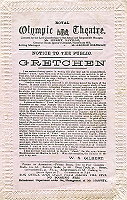
Gretchen is a tragic four-act play, in blank verse, written by W. S. Gilbert in 1878–79 based on Goethe's version of part of the Faust legend.

The Piccolo Teatro di Milano is a theatre in Milan, Italy. Founded in 1947, it is Italy's first permanent theatre, and a national teatro stabile, or permanent repertory company, and is considered a theatre of major national and European importance. The theatre has three venues: Teatro Grassi, in Via Rovello, between Sforza Castle and the Piazza del Duomo; Teatro Studio, which was originally intended to be the theater's rehearsal hall; and Teatro Strehler, which opened in 1998 with a seating capacity of 974. Its annual programme consists of approximately thirty performances. In addition, the venue hosts cultural events, from festivals and films, to concerts, conferences, and conventions, as well as supporting the Paolo Grassi Drama School.
Kirsten Blinkenberg Hastrup is a Danish anthropologist and professor of anthropology at the University of Copenhagen. She has taken a special interest in the conjunction between the history and culture of both Iceland and Greenland, publishing widely on both, while also examining the relationship between the theatre and anthropology. Hastrup was president of the Royal Danish Academy of Sciences and Letters from 2008 to 2016.
Rhonda K. Garelick is an American professor and author. She is currently a professor of English with a special joint appointment in the Hixson-Lied College of Fine and Performing Arts. She is the founder and director of the Interdisciplinary Arts Symposium based in the Hixson-Lied College. She is a scholar of performance, fashion, literature, visual arts, and cultural politics.
Oxygen is a 2001 play by Roald Hoffman who received the chemistry Nobel prize in 1982, and Carl Djerassi, the Stanford biochemist.
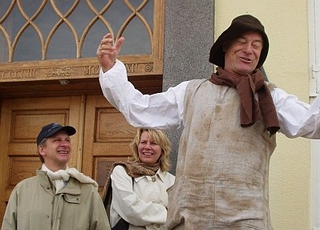
Kirsten Olesen is a Danish actress who since 1979 has been with Copenhagen's Royal Danish Theatre. In Denmark, she is known above all for taking the part of Agnes, a housemaid, in the popular television series Matador (1978–1982). Internationally, she has starred in the title role of Lars von Trier's Medea (1988).

Fermat's Last Tango is a 2000 off-Broadway musical about the proof of Fermat's Last Theorem, written by husband and wife Joshua Rosenblum and Joanne Sydney Lessner. The musical presents a fictionalized version of the real life story of Andrew Wiles, and has been praised for the accuracy of the mathematical content. The original production at the York Theatre received mixed reviews, but the musical was well received by mathematical audiences. A video of the original production has been distributed by the Clay Mathematics Institute and shown at several mathematical conferences and similar occasions. The musical has also been translated into Portuguese.













